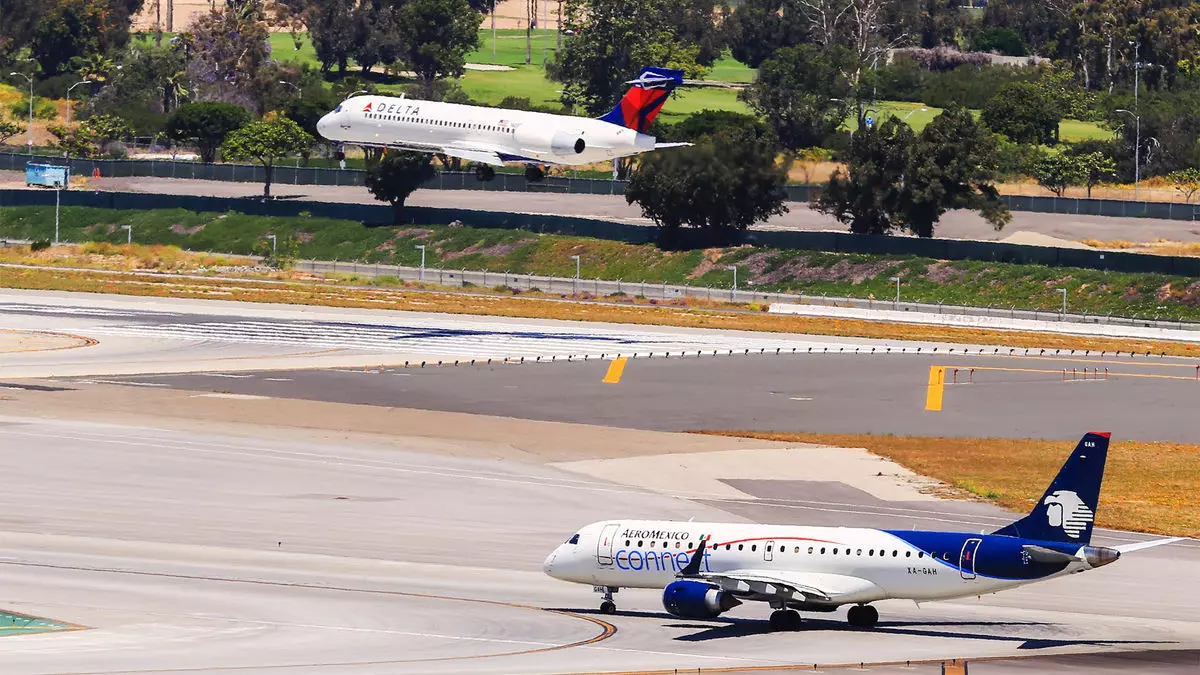The onset of Mexican President-elect Claudia Sheinbaum’s administration has sparked optimism from the International Air Transport Association (IATA) regarding improved aviation relations between the U.S. and Mexico. However, there is concern about the alignment of Sheinbaum’s policy goals with those of her predecessor, Andres Manuel Lopez Obrador. This continuity in policy could potentially hinder the progress of resolving existing aviation disputes and issues between the two countries.
The Department of Transportation (DOT) has been grappling with crucial decisions related to the aviation policies set forth by the Lopez Obrador government in Mexico. The potential termination of the antitrust-immune Delta-Aeromexico joint venture and the suspension of the antitrust immunity application of Allegiant and Viva Aerobus have raised concerns about the future of aviation partnerships and operations in the region. These decisions have direct implications for the competitiveness and sustainability of air transport between the U.S. and Mexico.
Concerns over Capacity Restrictions
The capacity restrictions imposed at the Benito Juarez Airport in Mexico have raised alarms within the aviation industry, particularly with regards to compliance with the open skies air transport agreement between the U.S. and Mexico. The reduction in hourly flight operations and the termination of cargo service at Benito Juarez have forced airlines to adapt to new operational challenges and limitations. These restrictions not only impact the operational efficiency of airlines but also hinder the growth and development of air travel between the two countries.
Despite IATA’s optimism about Sheinbaum’s administration facilitating sustainable air transport growth, questions remain about the substantive differences in aviation policy between her and Lopez Obrador. The lack of clarity on proposals to restore capacity at Benito Juarez and the focus on expanding Felipe Angeles Airport and Mexicana reveal potential continuity in the existing government’s aviation strategies. This lack of concrete steps towards addressing critical aviation issues could further complicate the resolution of ongoing disputes with the U.S.
The challenges posed by the capacity restrictions at Benito Juarez have not only impacted Mexican airlines but also hindered U.S. carriers’ expansion and entry into the market. Airlines like Southwest, JetBlue, and Frontier have faced limitations in expanding their operations at Mexico City, limiting their ability to serve passengers and compete in the region. The regulatory challenges and uncertainties surrounding aviation policies in Mexico have created barriers for U.S. carriers looking to enhance their presence in the country.
The ongoing presidential transition in Mexico and the potential continuity in aviation policies under Sheinbaum’s administration could lead to further regulatory challenges for the air transport sector. The DOT’s likely independent actions, including the termination of antitrust immunity agreements and calls for treaty renegotiations, signal a complex and challenging environment for aviation stakeholders. IATA’s role as an intermediary between the two countries becomes crucial in navigating these uncertainties and advocating for increased capacity and sustainable growth at Benito Juarez Airport.
The analysis reveals the intricate challenges and implications of Mexico’s aviation policies on U.S.-Mexico relations. The evolving landscape of aviation regulations, the impact of capacity restrictions, and the continuity in policy approaches under new administrations highlight the need for collaborative efforts to address critical aviation issues and foster sustainable air transport growth in the region.

